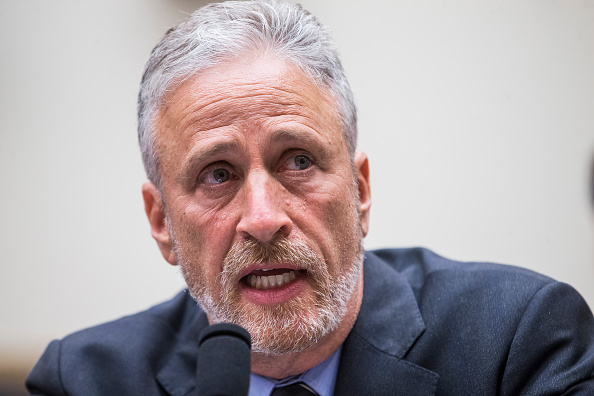Jon Stewart, the comedian and former “Daily Show” host, is pursuing federal help for military veterans who were exposed to toxic “burn pits” during service in Iraq and Afghanistan.
Joined by other advocates for the tens of thousands of service members whose health was threatened by exposure to such fumes, Stewart appeared Tuesday on the steps of the U.S. Capitol.
The military used more than 250 burn pits — literally giant holes in the ground, filled with trash, doused with jet fuel and set afire — to rid the battlefields of unwanted or dangerous materials.
“Advocates for years have criticized the Department of Veterans Affairs for insisting that individuals prove a direct connection between the toxic fumes they breathed during deployments and rare cancers and respiratory illnesses,” reports Military Times.
The Pentagon admits it did little to track such veterans or the diseases that may have been caused by breathing poisoned air.
“This is not about science, this is about money,” Stewart said at the Capitol Hill news conference, which included family members of the dead or dying veterans.
“Listen to these families … Delaying care and waiting for veterans to die is not a mantle worthy of our country,” Stewart said.
New legislation sponsored by Sen. Kirsten Gillibrand (D-NY) and Rep. Raul Ruiz (D-CA) “would streamline the process for veterans seeking benefits for illnesses caused by toxic exposures,” says the New York Times.
Gillibrand said there were parallels between her efforts on burn pits with those that she and Stewart waged for firefighters and other workers who responded to the Sept. 11 attacks — and for millions of veterans who were exposed to highly toxic defoliant Agent Orange.
“The bill would cover several medical conditions associated with exposure, including all cancers, asthma and chronic obstructive pulmonary disease,” says The Hill.
Many of the 9/11 first responders who later got sick from breathing smoke and other fumes from the collapsed Twin Towers got medical help from a government compensation fund that was passed in part thanks to advocates like Stewart.
“We have to do the same for the veterans of the war on terror,” Gillibrand said. “To put it simply, the bill says that if you were there you are covered. Plain and simple. This bill applies common sense and common decency to a very broken process.”
Stewart said that after the success following the 9/11 terror attacks, “we thought it was done.”
“But it turns out that the warfighters that were sent to prosecute the battle based on the attack … now suffer the same injuries and illnesses that the first responders suffer from, and they’re getting the same cold shoulder from Congress that they received,” Stewart said.
“And so the fight starts again.”



